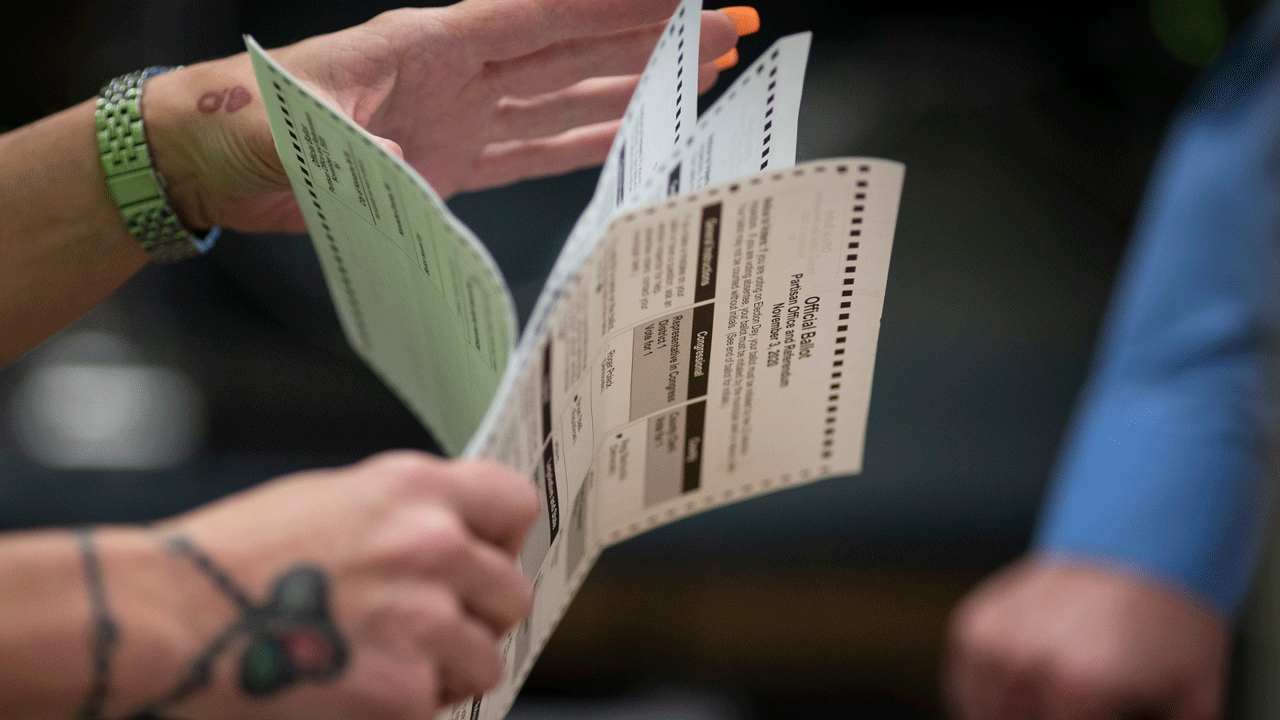
MADISON, Wis. (AP) — Wisconsin voters with disabilities should be able to cast their ballots electronically and failure to provide that option for the upcoming Aug. 13 primary and November presidential election is discriminatory and unconstitutional, a lawsuit filed Tuesday in the battleground state alleges.
The lawsuit seeks to require that electronic absentee voting be an option for people with disabilities, just as it is for military and overseas voters. Under current Wisconsin law, people with disabilities are “treated unequally and face real and considerable hurdles to participating in absentee voting,” the lawsuit argues.
Absentee ballots, including who can return them and where, have been a political flashpoint in swing state Wisconsin, where four of the past six presidential elections have been decided by less than a percentage point. The Wisconsin Supreme Court is scheduled to hear arguments next month in a case seeking to overturn a previous ruling banning absentee ballot drop boxes.
Poll workers sort out ballots at the Kenosha Municipal building on Election Day, Nov. 3, 2020, in Kenosha, Wis. A lawsuit in Wisconsin argues that voters with disabilities should be able to cast their ballots electronically and that failing to provide that option for the upcoming Tuesday, Aug. 13, primary and November 2024 presidential election is discriminatory and unconstitutional. The lawsuit filed Tuesday, April 16, seeks to require that electronic absentee voting be an option for people with disabilities in Wisconsin, just as it is for military and overseas voters. (Wong Maye-E/AP Photo)
A federal court sided with disability rights activists in 2022 and said the Voting Rights Act applies to Wisconsin voters who require assistance with mailing or delivering their absentee ballot because of a disability. The ruling overturned a Wisconsin Supreme Court ruling that said only the voter can return their ballot in person or place it in the mail.
The new case was filed against the Wisconsin Elections Commission in Dane County Circuit Court by four voters, Disability Rights Wisconsin and the League of Women Voters. Riley Vetterkind, a spokesperson for the elections commission, declined to comment on the lawsuit.
Voters with disabilities must have the ability to vote electronically in order for Wisconsin to comply with a variety of state and federal laws related to accommodation and equal-access, the lawsuit argues. Electronic voting will also ensure that people with disabilities are treated the same as other voters, the lawsuit contends.
The lawsuit states that because absentee voting for most in Wisconsin is by paper ballot, many people with disabilities are unable to cast their votes without assistance. They could vote in private if electronic voting were an option, the lawsuit argues.
“This unconstitutional defect in Wisconsin’s absentee ballot system is well-known yet remains unaddressed,” the lawsuit alleges.
The individuals who brought the lawsuit are Donald Natzke, of Shorewood, and Michael Christopher, of Madison, both of whom are blind; Stacy Ellingen, of Oshkosh, who has cerebral palsy; and Tyler Engel, of Madison, who has spinal muscular atrophy. All four of them are unable to vote absentee privately and independently, the lawsuit argues.
CLICK HERE TO GET THE FOX NEWS APP
The lawsuit alleges that not providing electronic absentee voting for people with disabilities violates the state and federal constitutions, the Americans with Disabilities Act and the federal Rehabilitation Act, which prohibits all organizations that receive federal financial assistance from discriminating on the basis of disability.
People with disabilities make up about one-fourth of the U.S. adult population, according to the Centers for Disease Control and Prevention. They have been ensnared in battles over access to the polls as many Republican-led states have passed restrictive voting laws in recent years, including over limits on what assistance a voter can receive and whether someone else can return a voter’s mailed ballot.







